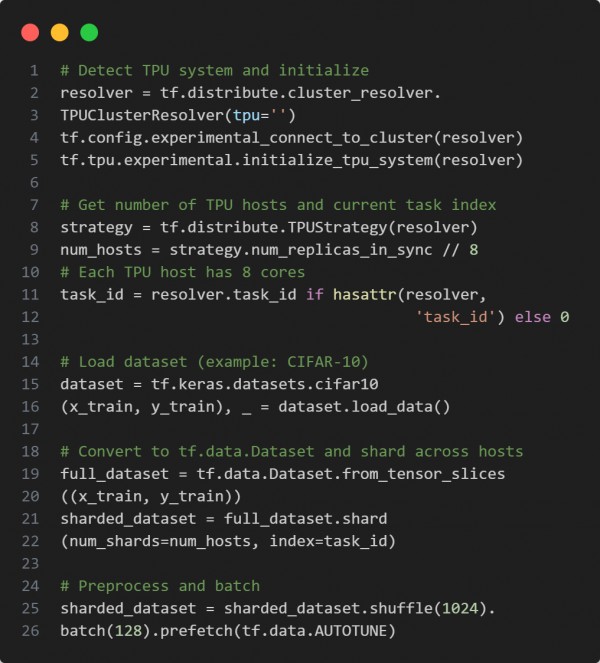Partitioning a large dataset for multi-host TPU training ensures each host processes a distinct data shard, enabling efficient parallelism and reducing communication overhead.
Here is the code snippet you can refer to:

In the above code, we are using the following key points:
-
TPUClusterResolver: Detects TPU configuration and host context.
-
num_hosts: Derived from total replicas to calculate dataset splits.
-
shard(): Ensures non-overlapping data slices per host for training efficiency.
-
task_id: Identifies which shard belongs to the current host.
-
prefetch() + shuffle() ensure optimal input pipeline performance.
Hence, dataset partitioning across TPU hosts enables scalable, efficient multi-host training with independent data processing per worker.
 REGISTER FOR FREE WEBINAR
X
REGISTER FOR FREE WEBINAR
X
 Thank you for registering
Join Edureka Meetup community for 100+ Free Webinars each month
JOIN MEETUP GROUP
Thank you for registering
Join Edureka Meetup community for 100+ Free Webinars each month
JOIN MEETUP GROUP